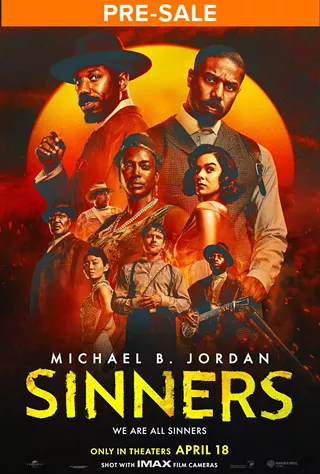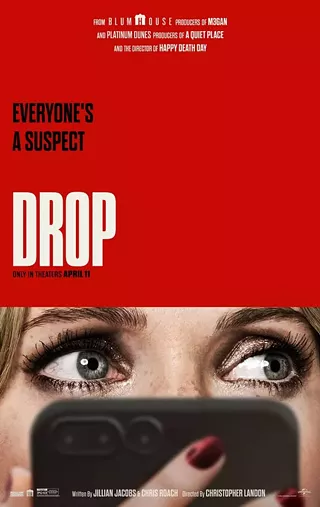Other than some concerns about the late appearance of the blood, there's almost nothing bad that one can say about this film. Writer/director Paul Thomas Anderson, who outdid himself in 2002 with Punch-Drunk Love, has now gone so far beyond that movie that they'll probably have to make a new Oscar category for him. Like, there'll be a Paul Thomas Anderson Oscar that just goes to Paul Thomas Anderson, and then there will be the regular Best Director Oscar, which everyone will understand to mean "Best Director Who Isn't Paul Thomas Anderson."
Blood is a grand epic in the old style. The really old style, like The Iliad or The Bible, only much, much better. It's the sweeping tale of the life of oilman Daniel Plainview, beginning in 1898, when he's just starting out, and ending in 1927, when he's become something like the old, fat Elvis, only not fat and way more eloquent, especially when discussing milkshakes.
Plainview is played by Daniel Day-Lewis, who creates a truly weird and compelling character, an obsessive, hate-filled and magnetically powerful oil prospector on a mission to buy up big chunks of California.
What separates Plainview from other self-made men is that his interest in personal gain is mostly about preventing anyone else from acquiring any degree of success. Seeing another do well is the one thing he cannot countenance, and in an accent and speech style that seems to have come from some alien culture of intergalactic milkshake traders, he drawls and charms his way into the pocketbooks and backyards of the poor farmers and church people who inhabit the dusty oilfields of the American West.
But as black-hearted as Plainview is, Anderson does not simply present him as the bad oilman preying upon the good-hearted plains folks. Instead, in the dark style of a true chronicler of the human condition, Anderson paints all participants as flawed, even evil--scrounging and insect-like upon the earth or parasitically upon the backs of others, picking whatever scraps of comfort they can get from a blighted, oil-soaked landscape. Underneath their salt-of-the-earth exteriors, the farmers and fathers and preachers are thieves and child abusers and conmen. The only thing that makes Plainview worse than them is that he's more successful at it than they are.
When Plainview comes to the town of Little Boston, he finds a lifelong enemy in a young preacher named Eli Sunday (Paul Dano). Eli is a faith-healing con artist, and he desires nothing more than to be the focal point of his small community. When Plainview arrives, Eli hopes to use him as a way to gain power. But Plainview has no interest in granting another's wish, and a 25-year battle erupts between them. Both are in love with prestige, and Plainview understands that's a zero-sum game: The more he has, the less there is for others.
Meanwhile, towers of fire and oil, pools of blood and metaphorical milkshakes splash across the clean, white screen. In the end--in a scene which stands among the most memorable film finales of all time--Anderson shows that he is now the king of the "new breed" of directors who arose (and mostly vanished) in the '90s.
While Day-Lewis and Dano steal the show, the mood of the film is set by the panoramic vision of cinematographer Robert Elswit (who also shot the gorgeous Michael Clayton) and the sweeping, old-school movie music of Jonny Greenwood.
Instead of the indie-pop that most of his contemporaries use, Anderson had Greenwood produce a Bernard Herrmann-like score that's potent and slyly manipulative without ever being obvious or excessive. There's no John Williams-style bombast, but there's still the grand sweep and orchestral force that's appropriate to the epic nature of the film.
I'm sure there are those who wouldn't enjoy There Will Be Blood. It has long silent sections that are masterpieces of visual storytelling, and Anderson smartly lets bits and pieces of the plot dry up and blow away, never revealing what will be important until the film's conclusion. I suppose for some, those things will be a test of patience, and not a mark of genius. But for others, There Will Be Blood will seem like the long-awaited heir to films like The Godfather and The Deer Hunter, character-centered epics that combine thoughtful cinematography, stylized performances and expansive time scales to create the kind of emotional force that is peculiarly cinematic.









